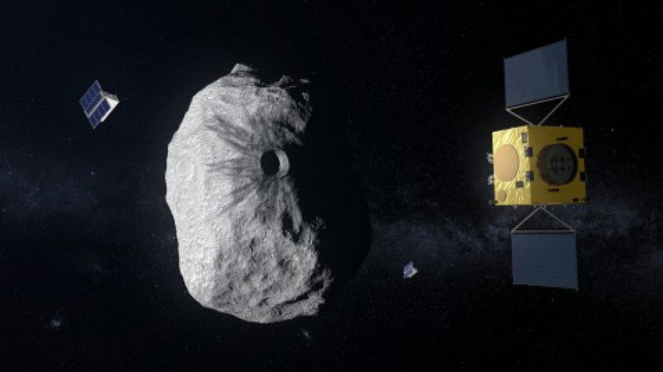Wednesday, January 25 2023 – 12:05 WIB
LIVE Techno – Dust collected from surfaces asteroid Peanut-shaped and ‘potentially dangerous’ rocks have revealed that some space rocks are much stronger and more difficult to break than previously thought, raising concerns about long-term safety Earth.
Analysis of three tiny dust particles collected from the surface of the asteroid debris pile Itokawa 1,640 feet (500 meters) long suggests that the cosmic wanderer has survived in space despite multiple collisions for at least 4.2 billion years.
This means that there are many different types of asteroids that may come into contact with Earth and techniques to deflect or destroy the space rock may not be the best way.
Heaps of debris from former asteroids that were born after a giant impact and consist of loosely packed rocks and boulders held together by gravity.
A new study, published Jan. 23 in the journal Proceedings of the National Academy of Sciences has revealed that stacks of space rock have lasted nearly as long as the solar system has existed.
The big impact that destroyed the monolithic parent asteroid Itokawa and formed Itokawa occurred at least 4.2 billion years ago, according to the Live Science website, Wednesday, January 25, 2023.

NASA’s planetary defense mission, DART
Next page
“The very long survival time for an asteroid the size of Itokawa is associated with the shock-absorbing properties of the debris pile material,” said the study’s lead author, Fred Jourdan, a geochemist at the University of Curtin in Perth, Australia.

